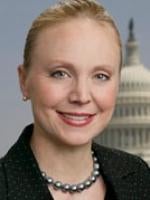For-profit education institutions may have breathed a sigh of relief on June 30, 2012, when a federal judge struck down most of the Department of Education’s Gainful Employment rule. The decision came none too soon, as the U.S. District Court for the District of Columbia issued the ruling literally on the eve of the day the regulations were slated to take effect. But these colleges and universities should not rest on their laurels. While the court sided with the private sector in this instance, the judge’s opinion keeps the door open for more and similar regulation.
To address concern over the seeming disconnect between debt burden and employment prospects of graduates of for-profit colleges and universities, the DOE last year published its Gainful Employment rule. The rule was instituted to test schools’ compliance with the Higher Education Act’s requirement that certain institutions must “prepare students for gainful employment in a recognized occupation” in order to qualify for federal funds. To accomplish this, the rule set forth three tests, one or more of which a school would need to meet, to qualify for federal funds. The tests required that:
1. At least 35 percent of graduates must be repaying their loans,
2. The median graduate’s estimated annual loan payments must not exceed 12 percent of earnings, or
3. The median graduate’s estimated annual loan payments must not exceed 30 percent of discretionary income.
The rule further required that subject schools make certain disclosures to prospective students and obtain DOE approval for new programs.
The Gainful Employment rule stirred up consternation in the for-profit world, as concerns mounted over the costs of compliance. The Association of Private Sector Colleges and Universities, the main association representing the for-profit education industry (with over 1800 members), challenged the rule in court.
The APSCU argued that the Gainful Employment rule exceeded statutory authority by stretching the meaning of the term “gainful employment.” The court squarely sided with the DOE on its authority, noting that “gainful employment” is not an unambiguous term and that the DOE has the authority to assess whether educational programs prepare students for gainful employment. The only question, according to the court, was whether the DOE had reasonably promulgated rules to test programs’ ability to prepare students.
Working through an analysis of the rules, the court ultimately determined that the debt repayment standard (No. 1 above) “was not based upon any facts at all. No expert study or industry standard suggested that the rate selected by the Department would appropriately measure whether a particular program adequately prepared its students, the court wrote. The reason: The rule was solely based upon statistics that at the 35 percent rate, roughly 25 percent of schools subject to the rule would fail, i.e. the rate was set because it would knock out the bottom quarter of schools.
The judge rightly ruled that this basis — merely picking a compromise figure — “is not reasoned decisionmaking.” Since the other standards were so intertwined with the debt repayment test, the judge struck them down as well, leaving remaining only the disclosure provisions of the rule.
The APSCU and the for-profit industry have hailed the judge’s decision as a victory. But the industry needs to understand that it may be just the first of a series of regulatory battles. The court’s opinion read largely like an opinion favoring the DOE. Notably, the judge stated that “the Department has gone looking for rats in ratholes — as the statute empowers it to do.” And the court squarely upheld the DOE’s regulatory authority to go about enforcing something just like the Gainful Employment rule, so long as the basis is grounded in sufficiently reasoned standards.
It is not clear yet how the DOE will proceed, and whether it will go about another round of rulemaking. But the court’s opinion provides ample incentive for the administration to take another turn at Gainful Employment.
Ifrah Law is a leading white-collar criminal defense firm that specializes in a variety of practice areas. View all.


 />i
/>i

